You are here
New Releases
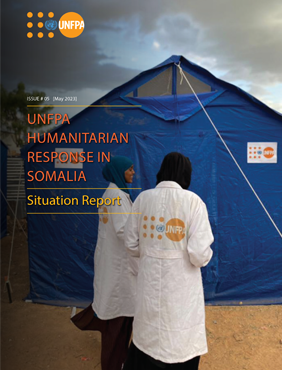
Somalia Situation Report - May 2023
The Somali population continues to endure numerous challenges, including climatic shocks, conflict, flash and riverine floods, and armed conflict. Among the most affected groups are displaced and vulnerable women and girls across the country. The Somalia 2023 Humanitarian Needs Overview (HNO) analysis reveals that over half of the estimated population, amounting to 8.25 million individuals, require critical humanitarian and protection assistance.
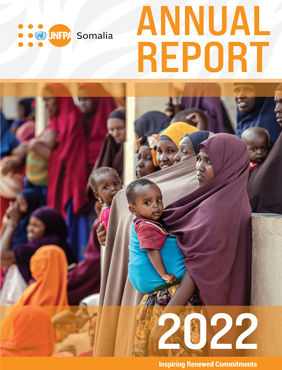
UNFPA Somalia Annual Report 2022
We are pleased to present the annual report for 2022 by the UNFPA Country Office for Somalia, which outlines our unwavering dedication to enhancing the lives of vulnerable populations, with a particular emphasis on women, adolescents, and youth. Throughout the report, we underscore the significance of collaborative efforts with the Somali government and our valued partners to tackle the multifaceted challenges arising from conflicts, displacement, and the pressing issue of climate crisis. With heartfelt gratitude for the support we have received, this report reaffirms UNFPA's steadfast commitment to advancing healthcare, promoting gender equality, and fostering youth empowerment within the context of Somalia.
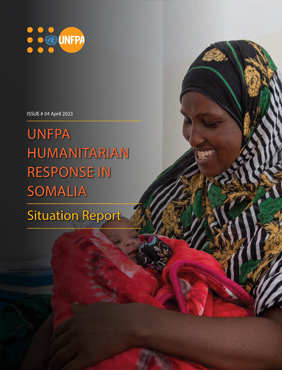
Somalia Situation Report - April 2023
The humanitarian situation in Somalia remains one of the most complex in the world, impacting millions of people due to various challenges including displacements, climatic shocks, drought, flash floods, riverine floods, and armed conflict. According to the Somalia 2023 Humanitarian Needs Overview (HNO), approximately 8.25 million people, nearly half of the population, require life-saving humanitarian and protection assistance
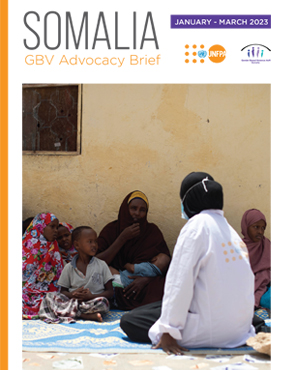
UNFPA Somalia GBV Quarterly Advocacy Brief | January-March 2023
The drought crisis in Somalia, which is now in its sixth season without rain, continues to be one of the most severe and felt shocks, endangering the lives, dignity, and prospects of millions of people. For women and girls, the impact has been severe. Ongoing conflicts, a spiraling economic crisis, displacements, unprecedented food and staple shortages, have converged to exacerbate gender-based violence. From January to March, 6.3 million people were expected to face crisis or worse food insecurity outcomes (IPC Phase 3 and above) including 322,000 who are likely to face catastrophic hunger (IPC Phase 5); while 1.2 million women and girls are estimated to suffer from lack of access to protective shelter and adequate specialized services for GBV.
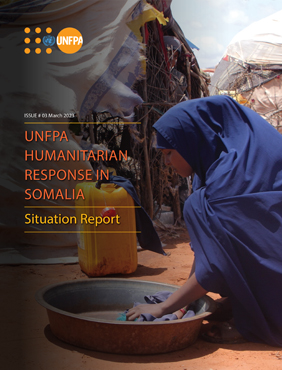
Somalia Situation Report - March 2023
The humanitarian situation in Somalia is complex and continues to affect millions of people through multiple displacements, climatic shocks, flash and riverine floods, and armed conflict. Ongoing fighting in Las'Anod has displaced between 154,000 and 203,000 people since December 2022, with an estimated 100,000 crossing into Ethiopia. The Somalia 2023 Humanitarian Needs Overview (HNO) indicates that nearly half of the Somali population, approximately 8.25 million people, require life-saving humanitarian and protection assistance
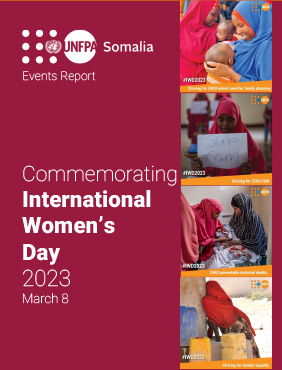
Commemorating International Women’s Day 2023
International Women's Day is a global event that celebrates the social, economic, cultural, and political achievements of women. It also marks a call to action for accelerating gender equality. The day has been observed for over a century and has been an essential platform for highlighting the ongoing struggles that women face in achieving equal rights and opportunities. It is a reminder of the need to promote women's empowerment and work towards a more equitable society. The United Nations Population Fund (UNFPA) recognizes the significance of International Women's Day and its role in advocating for gender equality, and it is committed to supporting and empowering women in Somalia

Scale-Up of Humanitarian Response_UNFPA Somalia
The ongoing drought and conflict in Somalia disproportionately impacted women and girls in the year 2022, with limited or no access to essential reproductive health services and increased vulnerability to gender-based violence (GBV), especially among displaced people.
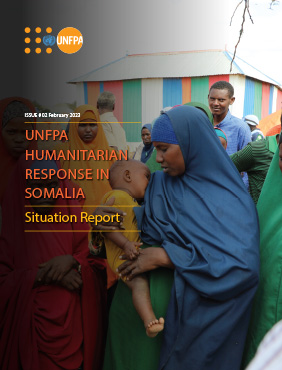
Somalia Situation Report - February 2023
The humanitarian crisis in Somalia remains dire. Severe drought, famine, disease, and violence have impacted millions, leading to widespread displacement. In 2022 alone, drought-related displacement increased by over five times, with more than 1.4 million people displaced since January 2021.
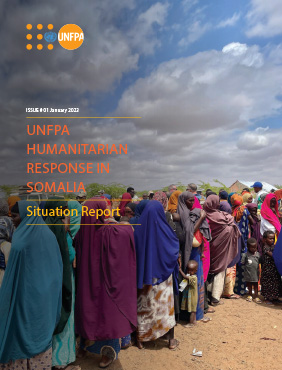
Somalia Situation Report - January 2023
Somalia is facing a climate emergency that is destroying the lives and livelihoods of millions of people. The forecast shows a fifth consecutive below-average rainy season for 2023, which has resulted in the longest drought the country has witnessed in more than 40 years. According to the UNHCR-led Protection and Return Monitoring Network (PRMN), the catastrophic drought has displaced more than 1.4 million people since 2021. Thousands of Somalis have also fled to neighboring countries to seek assistance. Many people have lost their livelihoods, and their coping capacities have been stretched.
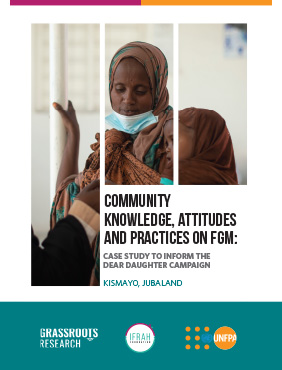
Community Knowledge, Attitudes and Practices on FGM_Jubaland
Female Genital Mutilation (FGM) is a procedure in which the external genitalia of girls and women are partially or completely removed and/or infibulated for non-medical reasons. The World Health Organisation (WHO) classifies four different types of FGM in terms of the degree of tissue removed and infibulation. In Somalia, the main cuts used for FGM are the Pharaonic form, which is considered the more severe form and a type of infibulation, and the milder Sunnah form. FGM causes lifelong physical, psychological, and reproductive health problems for the woman, but practicing communities uphold the practice as a social norm and religious duty. Somalia, including Jubaland, has one of the highest prevalence rates of FGM in the world, affecting nearly 98% of girls and women. The practice is shifting towards a milder form and medicalisation of the practice, while the high prevalence rates remain unchanged.